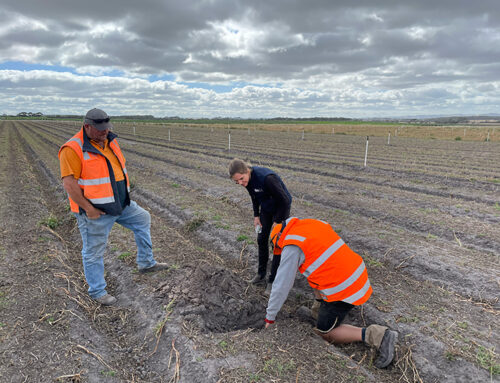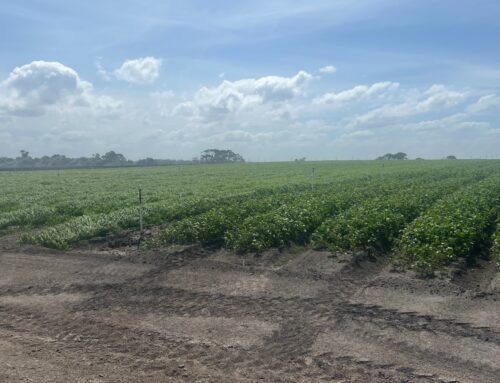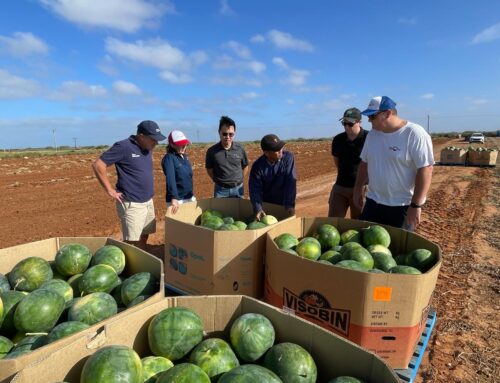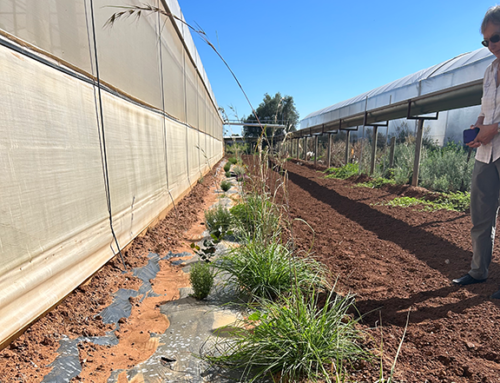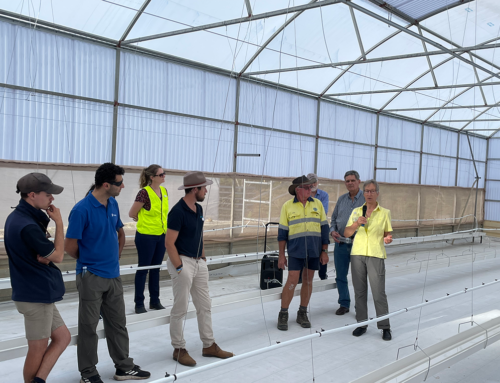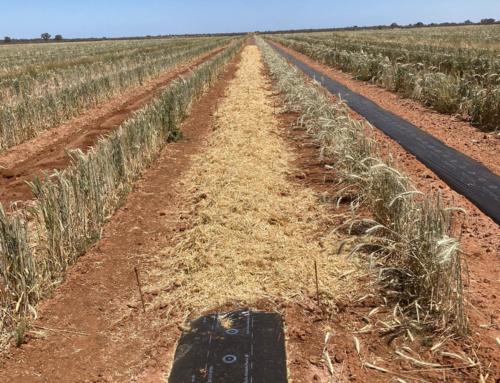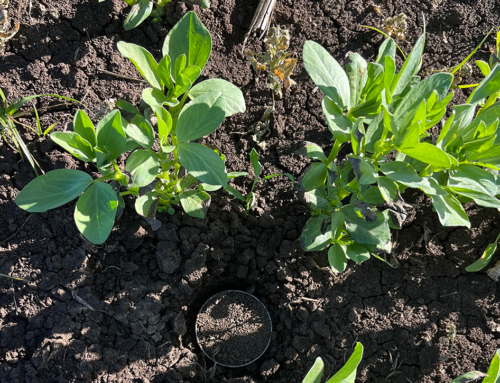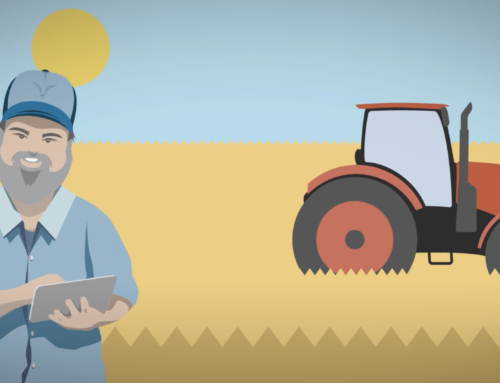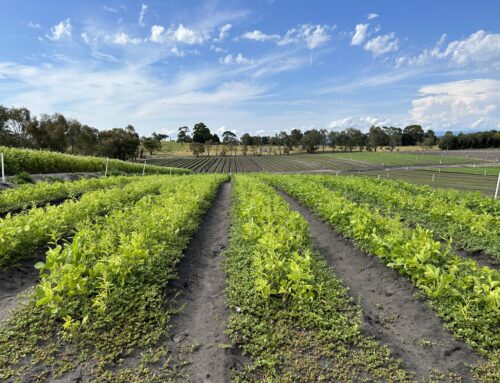The Annual Vegetable Industry Seminar, held ahead of Hort Connections 2022 in Brisbane, attracted a room full of growers on Monday 6 June.
Presentations included a grower panel from the Soil Wealth ICP project which discussed the cutting-edge practices and technologies that are key to improving productivity, profitability and sustainability in the Australian vegetable industry.
Soil Wealth ICP team members Dr Gordon Rogers and Carl Larsen facilitated the discussion with growers who currently or previously hosted demonstration sites as part of the project. The growers shared why they became involved in Soil Wealth ICP, the areas of soil management and plant health that their demonstration sites focused on, as well as the benefits and lessons learnt, and what’s next for their soil and plant health journey.
Panel insights
Through their involvement in the Soil Wealth ICP demonstration sites, all four growers questioned many traditional methods of farming and changed their production practices to increase productivity and profitability, while taking care of soil and plant health.
Mulyan Farms Director Ed Fagan is a third-generation vegetable grower near Cowra, New South Wales. Ed and his brother James have taken a whole farm approach to rebuilding their soils, employing carefully planned crop rotations, reduced tillage and cover crops to revitalise the soil and enhance their productivity.
“Cover crops have made a world of difference and we’re putting in legumes to help manage the high cost of nitrogen fertilisers,” Ed said.
“Trash management is an ongoing challenge … but it’s amazing how healthy your soils can get by putting in cover crops.”
Schreurs & Sons Director Adam Schreurs has partnered with the Soil Wealth ICP team since 2014 to explore the use of cover crops and the application of precision agriculture in Koo Wee Rup, Victoria.
“We saw a lot of degradation over the years and when the demonstration sites came along we thought it was a great opportunity to get involved,” he said.
While ryegrass and ryecorn cover crops were found to work well with leek crops, a change to an integrated pest management approach meant that Adam has transitioned from calendar spraying insecticides every week to first identifying pests and beneficials in a crop and only using targeted, softer products when needed throughout the growing season.
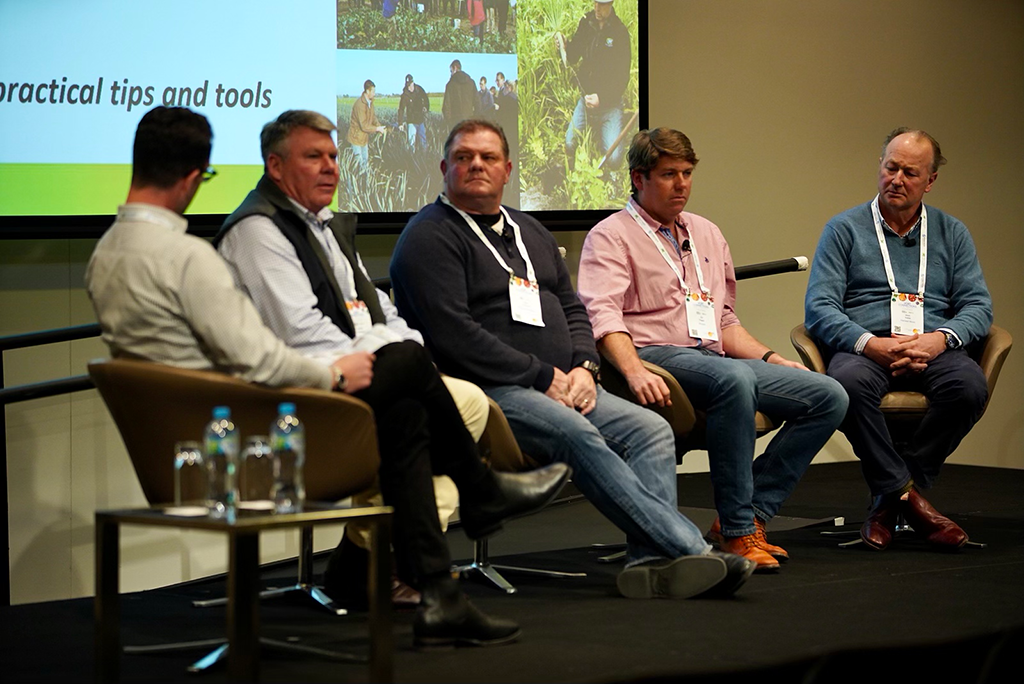
L-R: Andrew Johanson (Mulgowie Farming Company), Adam Schreurs (Schreurs & Sons), Ed Fagan (Mulyan Farms) and Mark Kable (Harvest Moon). Image courtesy of AUSVEG.
Harvest Moon Director Mark Kable has collaborated with the Soil Wealth ICP team for many years on controlled traffic farming, strip-till and cover crops in north-west Tasmania. He has also worked to share the lessons learnt to the broader industry.
“We’ve struggled with controlled traffic farming due to the typography of the area, but we worked with the ripper mulcher to help stop soil erosion and it’s still used today,” he said.
Mulgowie Farming Company in Queensland is one of the project’s newest demonstration sites. The business has a strong focus on innovation and sustainable farming practices, and their next goal is to better understand how to manage beneficial soil biology.
Specifically, Director Andrew Johanson is working with the Soil Wealth ICP team to improve mycorrhizal fungi in his soils.
“We introduced a soil health strategy and we were surprised to see how quickly we turned the farms around,” he said.
“Given the different soils across our farms, a slightly different management approach is needed in each area. Minimum till has led to more microbiology building up and the soil structure has changed, creating extra nutrients.”
A video of the panel discussion is available here.
The Soil Wealth ICP team would like to thank Ed, Adam, Mark and Andrew for their involvement in the project and for taking the time to share their insights with the wider industry.

